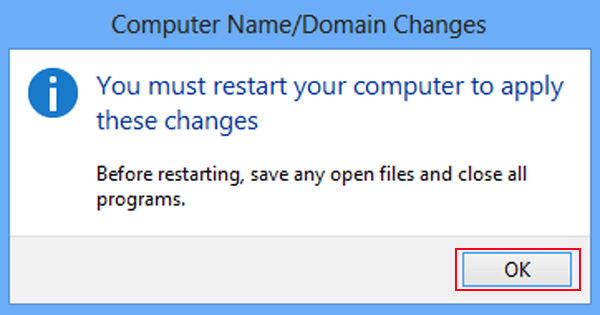
Event Sourcing
Let's write some history
Quick introduction
Willem-Jan Zijderveld
- @willemjanz
- github.com/wjzijderveld

Rotterdam
http://labs.qandidate.com
Broadway
Event Sourcing and CQRS library for PHP
github.com/qandidate-labs/broadway
Event Sourcing
You are throwing away data!

State gets stored
A company has one or more connected accounts
A company has one or more enabled applications
An account has access to one or more applications

Complicated solutions to store and retrieve the data
Boss: Which accounts received access to application X in December?
We'll add a timestamp
and we will know
From that point in time
With CRUD you lose information
You only store the latest information
Revoking access to an application for an account
You could lose when the access was revoked
You could lose why it got revoked
You could lose for which application it was revoked
You wouldn't know anything anymore
Let's assume you have
a soft-delete in place
Boss: I want to know for which applications access got revoked more than once
in the last year
Keep track of revocations
| account_id | app_id | datetime |
|---|---|---|
| 75623 | 8 | 2015-01-01T00:00:00+0000 |
| 75623 | 8 | 2015-01-27T18:54:18+0000 |
Past revocations are gone
How does Event Sourcing help me with that?
Store your data in
a different way
Record what has changed
The resulting state becomes a natural effect
EventStream
A serie of facts
CompanyRegistered
AppEnabled
AccountConnected
AccessGrantedToApp
Been there, done that
Single source of truth
- One source to rule all state
- The events cannot lie, it happened, deal with it
Your version control is event sourced


Sure thing, but how?
Well.. that is a complicated question
Event Sourcing + CQRS + DDD
That is a lot to cover in one evening
But each can be used on its own
Domain Driven Design
The business should understand our events
Aggregate root
Responsible for keeping a group of entities consistent
Something happened...
now what?
Record the change
DomainMessage
A message to tell your application what happened
DomainMessage
- Identifier
- Sequencenumber
- Event
- Timestamp
- Metadata
Identifier + sequencenumber
Event
It tells you WHAT happened
The name should be descriptive
Should contain everything
It should only depend on previous events
final class CompanyRegisteredEvent
{
private $companyId;
private $companyName;
// constructor + getters
}Timestamp
It tells you WHEN it happened
Metadata
Descriptive, not structural
Apply the event

CompanyRegistered
AppEnabled
AccountConnected
AccessGrantedToApp
CompanyRegisteredEvent
// Company
function applyCompanyRegisteredEvent(CompanyRegisteredEvent $event)
{
$this->companyId = $event->getCompanyId();
}AccountConnectedEvent
// Company
function applyAccountConnectedEvent(AccountConnectedEvent $event)
{
$this->accounts[$event->getAccountId()] = $event->getAccountId();
}AppEnabledEvent
// Company
function applyAppEnabledEvent(AppEnabledEvent $event)
{
$subscription = new Subscription($this->companyId, $event->getAppId());
$this->subscriptions[$event->getAppId()] = $subscription;
}AccessGrantedToAppEvent
// Company
public function getChildEntities()
{
return $this->subscriptions;
}// Subscription
function applyAccessGrantedToAppEvent(AccessGrantedToAppEvent $event)
{
if ($this->appId !== $event->getAppId()) {
return;
}
$this->grantedAccounts[$event->getAccountId()] = $event->getAccountId();
}
From Controller
to CommandHandler
class CompanyController
{
function createAction(Request $request)
{
$this->commandBus->dispatch(new RegisterCompanyCommand(
new CompanyId(Uuid::uuid4()),
new CompanyName($request->request->get('companyName'))
));
}
}From CommandHandler
to Aggregate
class CompanyCommandHandler
{
function handleRegisterCompanyCommand(RegisterCompanyCommand $command)
{
$company = Company::register(
$command->getCompanyId(),
$command->getCompanyName()
);
$this->aggregateRepostitory->save($company);
}
}From Aggregate to Event
class Company extends EventSourcedAggregateRoot
{
public static function register(CompanyId $companyId, CompanyName $name)
{
$company = new Company();
$company->apply(new CompanyRegisteredEvent($companyId, $name));
return $company;
}
public function applyCompanyRegisteredEvent(/**/ $event)
{
$this->companyId = $event->getCompanyId();
}
}Scenario based testing
$this->scenario
->given([
new CompanyRegisteredEvent(new CompanyId(123))
])
->when(function ($company) {
$company->enableApp(new AppId(42));
})
->then([
new AppEnabledEvent(new AppId(42), new CompanyId(123))
]);How to create a list of companies
Creating read models
Listen to the events
CompanyRegistration
class CompanyRegistration implements ReadModel
{
private $companyId;
private $companyName;
private $registeredOn;
public function __construct(
CompanyId $companyId,
CompanyName $companyName,
DateTime $dateTime
) {
// ..
}
}CompanyRegistrationProjector
class CompanyRegistrationProjector
{
public function applyCompanyRegisteredEvent(
CompanyRegisteredEvent $event,
DomainMessage $domainMessage
) {
$company = new CompanyRegistration(
$event->getCompanyId(),
$event->getCompanyName(),
$domainMessage->getRecordedOn()
);
$this->repository->save($company);
}
}
Combine different read model repositories
Use the right tool for the right job
Another scenario test
class CompanyRegistrationProjectorTest
{
public function it_creates_a_company_registration()
{
$this->scenario
->given([])
->when(new CompanyRegistered('123', 'Acme Inc.'), $dateTime)
->then([new CompanyRegistration('123', 'Acme Inc.', $dateTime)]);
}
}Possibilities are endless
The ability to create multiple read models
- List of company registrations
- Graph of all connections between companies and accounts
- Creating reports about the amount of revocations
Time travel is possible!
Use events you recorded to create a new report
multiple years after the fact
You made a mistake in a projection?
So what? Correct your projector and recreate your read model from your event stream
Questions?
joind.in/13466
@willemjanz
wjzijderveld@gmail.com
Freenode: #qandidate
More information
- http://codebetter.com/gregyoung/2010/02/20/why-use-event-sourcing/
- http://codebetter.com/gregyoung/2010/02/13/cqrs-and-event-sourcing/
- http://martinfowler.com/eaaDev/EventSourcing.html
- http://martinfowler.com/bliki/CQRS.html
- http://www.axonframework.org/docs/2.3/domain-modeling.html
- http://labs.qandidate.com/